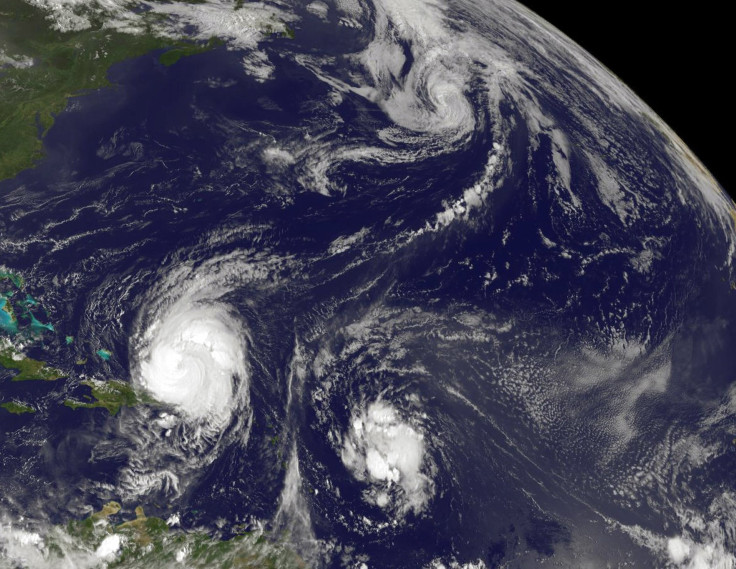Hurricane Irma Still 'Powerful' Storm, Bumped Down To Category 2

Hurricane Irma is slated to "remain a powerful" storm over Labor Day Weekend. The brewing tropical storm, which originally earned itself Category 3 status Thursday, moved down to a Category 2.
Irma's following a route that could carry it towards the eastern Caribbean Sea region by early next week, with the Lesser Antilles as a potential target. Rough surf and wind currents would be produced, too. Despite the storm's shift in strength, it still poses a threat.
"Irma continues to fluctuate in strength but remains a powerful hurricane," the National Hurricane Center (NHC) said Saturday. The NHC claims that Irma has climbed to maximum winds of 110 mph. As a Category 3 storm, Irma gained winds near 120 mph.
"Irma could also cause dangerous wind, storm surge and rainfall impacts on some islands," the NHC said. "It is too soon to specify where and when those hazards could occur. Residents in the Lesser Antilles should monitor the progress of Irma through the weekend and listen to any advice given by local officials."
Irma's potential impact on the U.S. is still unknown. Meteorologists claim that it is still too early to determine what the tropical storm is capable of and its direct targets.
Hurricanes are categorized by its wind speed through the Saffir-Simpson Hurricane Scale, according to the National Aeronautics and Space Administration (NASA). Under the Category 2 classification, Irma's winds would approach 96-110 mph. If the storm moves up towards a Category 3 classification again, Irma's winds would reach 111-129 mph.
Irma's Category 2 status, if sustained, would bring on a moderate storm. Noticeable damage would occur to trees, but it also has the strength to cause harm to rooftops.
Hurricane Irma's arrival comes on the heels of Hurricane Harvey, which had a tropical storm status on Aug. 17 and became a hurricane on Aug. 25.
Harvey has brought torrential rainfall to Houston and many surrounding areas. The death toll has reached 50 and the storm has destroyed buildings, along with power shortages and drinking water.
President Donald Trump declared that Sept. 3 would be a National Day of Prayer for Harvey victims, according to the White House's official website. Trump said, "I urge Americans of all faiths and religious traditions and backgrounds to offer prayers today for all those harmed by Hurricane Harvey."
© Copyright IBTimes 2025. All rights reserved.






















